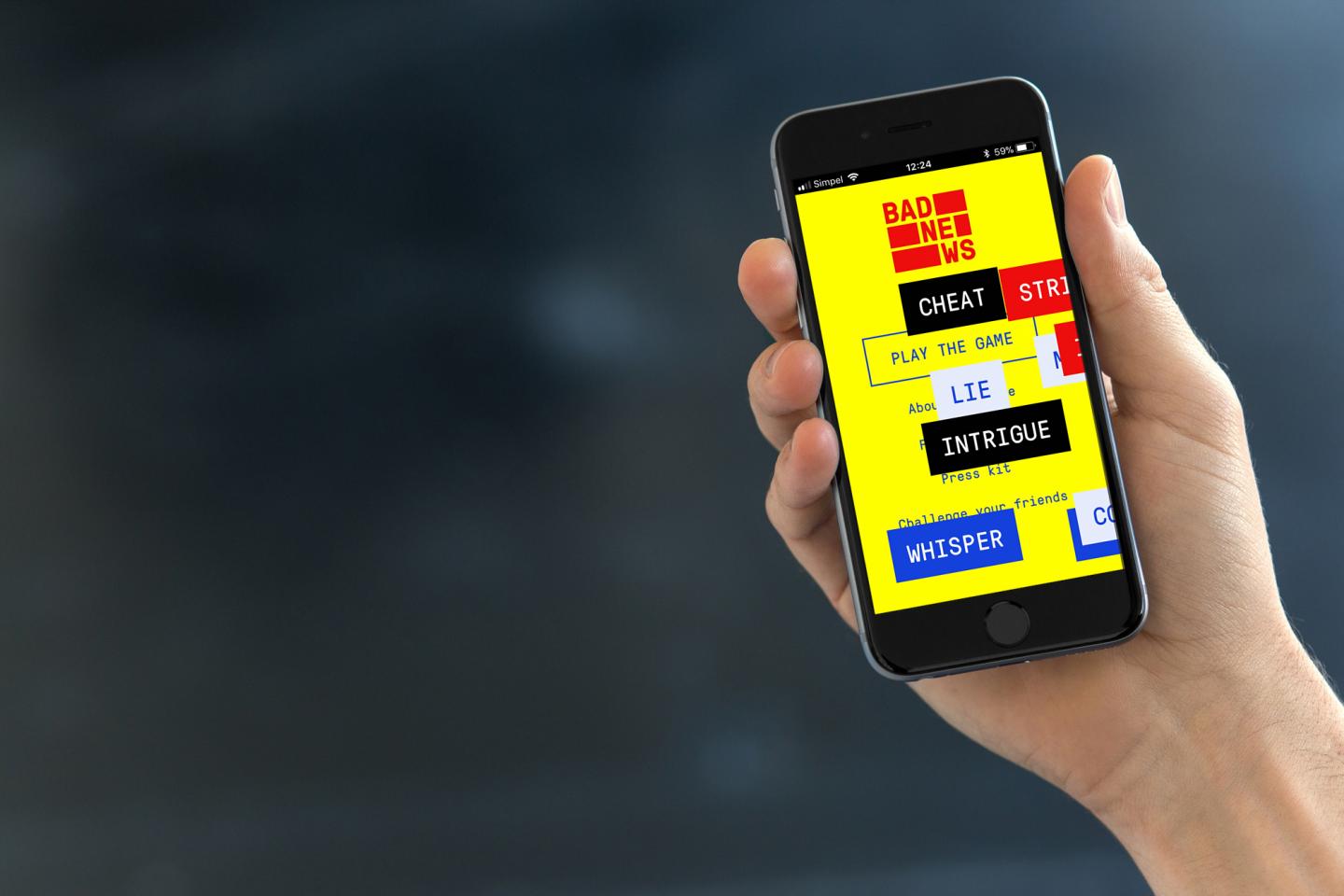
Credit: DROG
An online game in which people play the role of propaganda producers to help them identify real world disinformation has been shown to increase “psychological resistance” to fake news, according to a study of 15,000 participants.
In February 2018, University of Cambridge researchers helped launch the browser game Bad News. Thousands of people spent fifteen minutes completing it, with many allowing the data to be used for a study.
Players stoke anger and fear by manipulating news and social media within the simulation: deploying twitter bots, photo-shopping evidence, and inciting conspiracy theories to attract followers – all while maintaining a “credibility score” for persuasiveness.
“Research suggests that fake news spreads faster and deeper than the truth, so combatting disinformation after-the-fact can be like fighting a losing battle,” said Dr Sander van der Linden, Director of the Cambridge Social Decision-Making Lab.
“We wanted to see if we could pre-emptively debunk, or ‘pre-bunk’, fake news by exposing people to a weak dose of the methods used to create and spread disinformation, so they have a better understanding of how they might be deceived.
“This is a version of what psychologists call ‘inoculation theory’, with our game working like a psychological vaccination.”
To gauge the effects of the game, players were asked to rate the reliability of a series of different headlines and tweets before and after gameplay. They were randomly allocated a mixture of real (“control”) and fake news (“treatment”).
The study, published today in the journal Palgrave Communications, showed the perceived reliability of fake news before playing the game had reduced by an average of 21% after completing it. Yet the game made no difference to how users ranked real news.
The researchers also found that those who registered as most susceptible to fake news headlines at the outset benefited most from the “inoculation”.
“We find that just fifteen minutes of gameplay has a moderate effect, but a practically meaningful one when scaled across thousands of people worldwide, if we think in terms of building societal resistance to fake news,” said van der Linden.
Jon Roozenbeek, study co-author also from Cambridge University, said: “We are shifting the target from ideas to tactics. By doing this, we are hoping to create what you might call a general ‘vaccine’ against fake news, rather than trying to counter each specific conspiracy or falsehood.”
Roozenbeek and van der Linden worked with Dutch media collective DROG and design agency Gusmanson to develop Bad News, and the idea of a game to inoculate against fake news has attracted much attention.
Working with the UK Foreign Office, the team have translated the game into nine different languages, including German, Serbian, Polish and Greek. WhatsApp have commissioned the researchers to create a new game for their messaging platform.
The team have also created a “junior version” for children aged 8-10, available in ten different languages so far. “We want to develop a simple and engaging way to establish media literacy at a relatively early age, then look at how long the effects last,” said Roozenbeek.
This first set of results from Bad News has its limitations, say researchers. The sample was self-selecting (those who came across the game online and opted to play), and as such was skewed toward younger, male, liberal, and more educated demographics.
With this in mind, however, the study found the game to be almost equally effective across age, education, gender, and political persuasion. Bad News has ideological balance built in: players can choose to create fake news from the left and right of the political spectrum.
There are six “badges” to earn in the game, each reflecting a common strategy used by purveyors of fake news: impersonation; conspiracy; polarisation; discrediting sources; trolling; emotionally provocative content.
Due to limited bandwidth, in-game questions measuring the effects of Bad News were deployed for four of its featured fake news badges.
For the disinformation tactic of “impersonation”, often seen in the mimicking of trusted personalities on social media, the game reduced perceived reliability of the fake headlines and tweets by 24% from pre to post gameplay.
Bad News gameplay reduced perceived reliability of deliberately polarising headlines by about 10%, and “discrediting” – attacking a legitimate source with accusations of bias – by 19%.
For “conspiracy”, the spreading of false narratives blaming secretive groups for world events, perceived reliability was reduced by 20%.
“Our platform offers early evidence of a way to start building blanket protection against deception, by training people to be more attuned to the techniques that underpin most fake news,” added Roozenbeek.
###
Media Contact
Fred Lewsey
[email protected]
Related Journal Article
http://dx.



